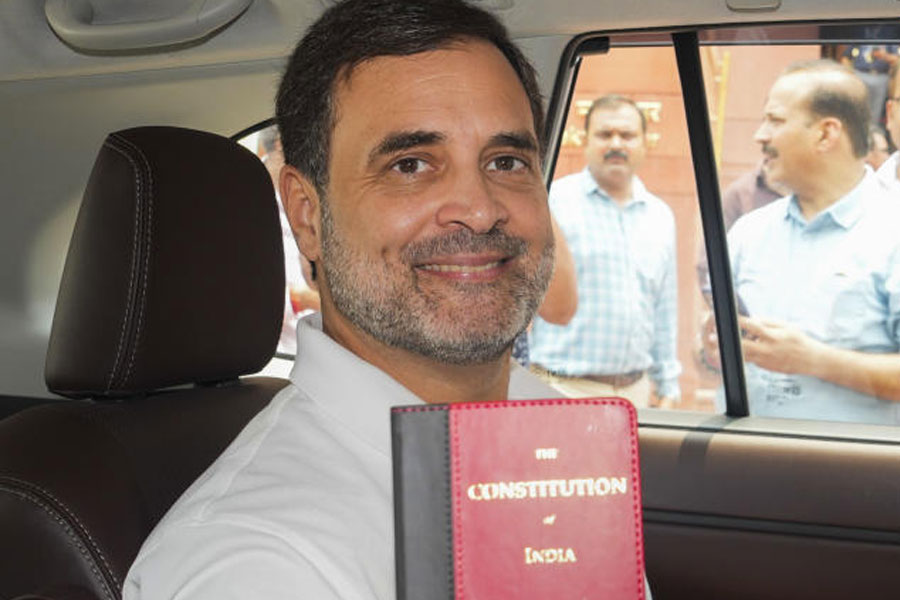On November 26, 2024, at the Constitution Day event in the Central Parliamentary Hall, Rahul Gandhi, Leader of the Opposition in the Lok Sabha, once again stirred controversy with what many perceived as entitled and disrespectful behaviour. The event, intended to celebrate India’s Constitution and its democratic values, took a backseat as Gandhi’s conduct drew attention.
Observers were taken aback when Gandhi took his seat even before the President, Vice President, Prime Minister, and Speaker had settled. This breach of protocol was notable given the presence of such high-ranking dignitaries. It was Mallikarjun Kharge, President of the Congress Party and Leader of the Opposition in the Rajya Sabha, who had to nudge Gandhi to stand. Such a public correction underscores the gravity of the lapse and raises questions about Gandhi’s awareness and respect for formalities.
The second incident occurred when Gandhi walked down from the dais before the President and other senior leaders had the chance to move. In official events, it is customary to allow the President, as the highest constitutional authority, to lead such movements. Gandhi’s apparent disregard for this protocol, as well as the lack of any salutations to the President, was seen by many as a deliberate affront.

What’s striking is how the media handled the situation. While some outlets, often labeled as “Left Wing” or “Godi media,” downplayed the event, others made only fleeting references to it. Unlike other incidents that trigger heated debates and panel discussions, Gandhi’s conduct did not receive the scrutiny many expected. This selective silence raises questions about media biases and their role in holding public figures accountable.
Gandhi’s critics often point to his past conduct as evidence of a sense of entitlement. Former U.S. President Barack Obama’s assessment of Gandhi in his memoir adds weight to this narrative. Obama described Gandhi as having “a nervous, unformed quality,” eager to impress but lacking both aptitude and passion. If Obama were to witness Gandhi’s latest behavior, it’s not difficult to imagine a similarly critical response.
Beyond protocol breaches, Gandhi’s behavior has sparked deeper concerns. His critics warn that such arrogance and disregard for norms could have dangerous implications if he were to assume higher office. Some go as far as to suggest that his perceived narcissism could lead to authoritarian tendencies, undermining the very democracy that events like Constitution Day aim to celebrate.
The responsibility now falls on intellectuals, the media, and the public to critically examine Gandhi’s conduct and its implications. Leadership demands humility, respect for institutions, and adherence to democratic principles. If Gandhi aspires to be the Prime Minister, it’s imperative that his actions align with these values.
In a democracy, leaders are accountable not only to their party but to the people. As citizens, it’s our duty to question and hold them to the highest standards. Whether or not Rahul Gandhi can rise to this challenge remains to be seen.





